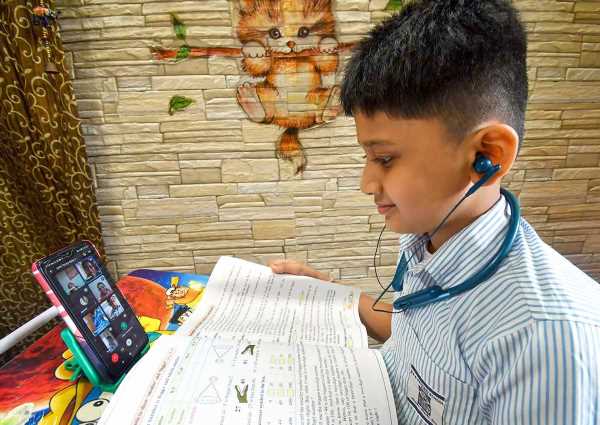Dr Jafferhusein Sura, consultant ENT surgeon at Mumbai’s Masina Hospital, shares simple tips to protect your ears and keep them healthy.
The Covid-induced pandemic has changed the world as we know it.
With online interactions becoming the norm, Zoom, Google meets, Microsoft teams, etc, have become the preferred mode of communication for children and adults.
Since April 2020, there has been a steady rise in the number of people using headphones/earbuds for online education and entertainment purposes.
The age group has also broadened.
Earlier, only teenagers and young adults were using headphones or earphones or earbuds for entertainment. Now, even children and elderly citizens are using them with increased frequency for basic communication and learning.
Whether it is the in-the-canal earbuds, or earphones which sit at the external meatus or over-the-ear headphones… all of these, if not used properly or used for prolonged listening, can lead to permanent ear damage.
Know the dangers
Hearing loss, itchiness or dryness in the ear and increased ear infections can all be caused by using ear phones for too long.
The World Health Organisation has laid out guidelines stating the recommended number of maximum hours of exposure to various levels of sound in order to prevent hearing loss.
- The decibel level of normal speech is 60-65db.
- The average level of personal devices is 80-85db.
- You may be exposed to sounds above 90db (like a lawn mower) for a maximum duration of eight hours in a day.
- If the sound is above 100db, as in a nightclub, then the duration should be no more than two hours.
- Both teens and adults should avoid listening to loud music on their earphones for a prolonged duration.
- It is recommended to keep the volume of the device, while using earphones, to 60 per cent of the maximum volume possible at all times.
Most important, one has to allow the ears to rest.
Here are 10 simple things you can do to protect your ears and keep them healthy:
1. Keep your ears clean.
After bathing, use a moist soft cloth to wipe the outside of your ear and clean off all dry skin and dirt.
Do this regularly to avoid infections caused due to moistness, dust and dirt.
2. Use earbuds with caution.
While earbuds help you clean excess wax and dirt, most people do not use them correctly which causes more damage.
When you insert the earbud far more than the cotton tip, it pushes the wax further inside.
Check with your doctor or seek help from an expert so you learn how to do it correctly.
3. Do not itch or scratch your ears.
If you have dryness and itchiness, it is very common for us to insert our fingers in our ears or use any object to get immediate relief.
Never use your finger nails or any other object to scratch your ears.
By doing so, you could hurt your ear drum or the delicate skin in your inner ear.
4. Do not use lubricants.
While several resources online may suggest that warm oil is a good lubricant, it comes with a lot of pros and cons.
Do not use coconut oil or any oil, especially if you have dry skin and itchiness.
If you have a ruptured ear drum, it may lead to harmful infections.
5. Do not splash water in your ears.
Many people use the shower to force water into their ears to clean them. This is unhealthy for your ears and not recommended.
6. Use headphones whenever possible.
To minimise distraction from loud noise/s, use headphones where you can adjust the volume to your liking.
While using headphones or any audio device, don’t use high volumes to listen to music and audio files.
Even your device warns you from increasing the volume beyond 60 per cent.
Listening to high volume audio regularly could lead to permanent auditory damage.
7. Clean your devices.
If you are using earphones/earbuds regularly, make sure they are clean and stored in a clean place.
Wipe the rubber tips with an alcohol swab before using them.
8. Reduce volume.
Use earphones and speakers at recommended volumes only.
Avoid using them at high volumes for prolonged periods.
9. Take breaks.
Give adequate rest to your ears from sounds. Take a break every hour or so to allow for auditory reset.
10. DO NOT self-medicate
There may be several easy and natural alternatives to treat ear conditions.
However, it would be best to avoid taking any medicines or applying anything to your ears without consulting an expert.
Source: Read Full Article


